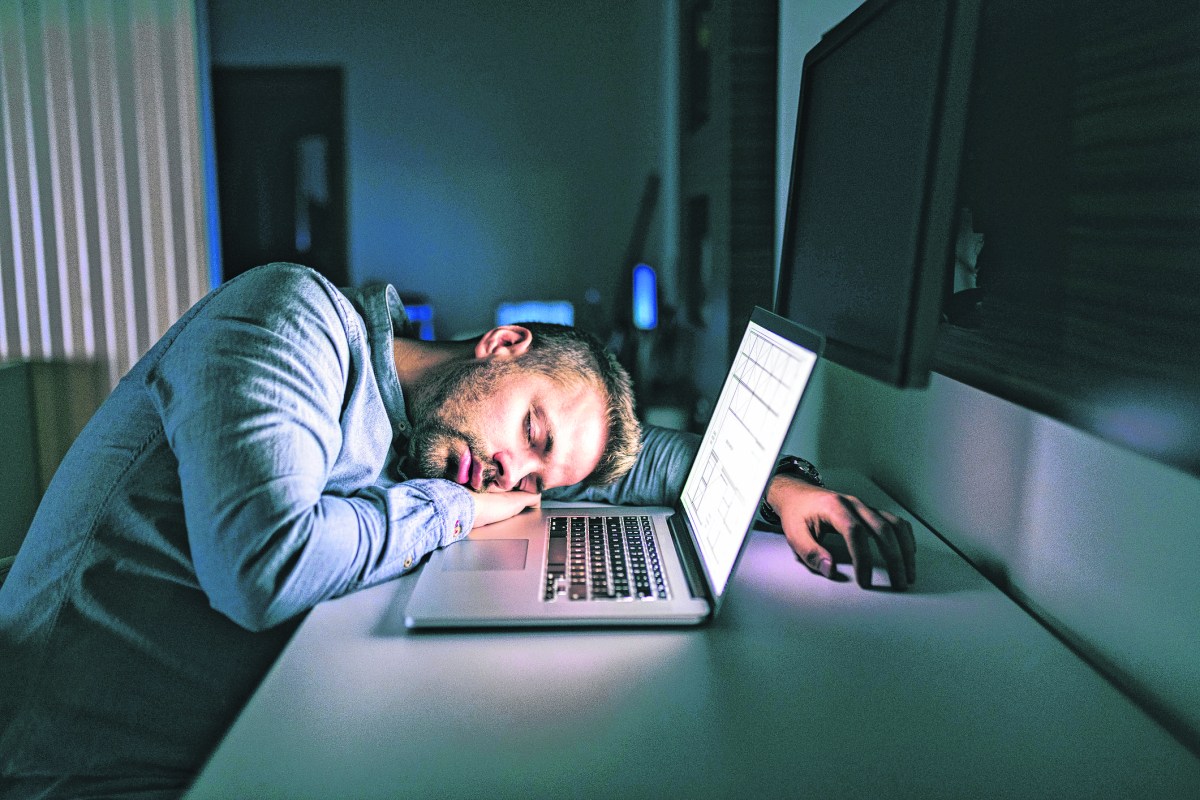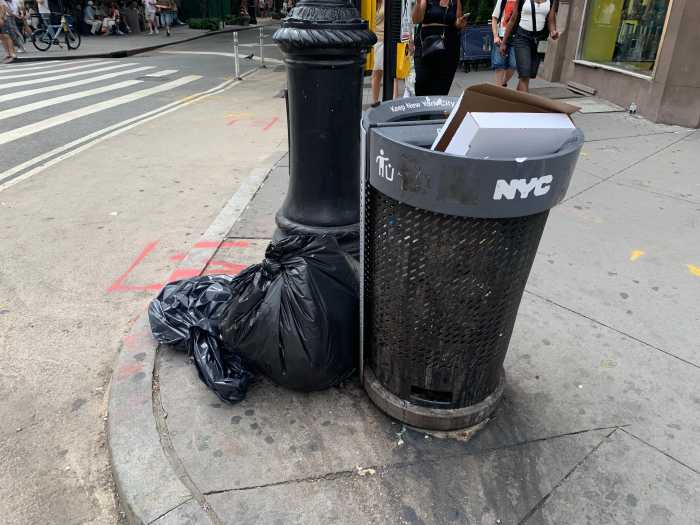Ask Dr. James Bruno, a neurologist and sleep disorders specialist at Three Village Neurology, in Port Jefferson Station, to name a culprit in terms of what steals our sleep and he doesn’t miss a beat.
Yes, there’s stress, coffee and alcohol. But electronics, from Instagram to Netflix, give us images that flicker and text we read on screens long after the sun has set and darkness has set in.
“It’s electronics,” he said. “You’re not supposed to use electronics two hours before targeted bedtime. Between the light and the motion on the screen, it stimulates your brain. It doesn’t let your mind calm down for the evening.”
While sleep is as essential as eating, Americans may be experiencing a lack-of-sleep epidemic.
Telephones ring at all hours and social media and the internet, not just New York City, never sleeps. So neither do many of us — or at least not much, or not well. Lack of sleep takes its toll in the workplace, more than the occasional yawn and nod.
“It decreases productivity, because people are exhausted,” Bruno said, noting a growing reliance on electronics, as the days of nine to five every weekday in offices as the overriding norm become obsolete.
SLEEP SAFETY
A drowsy truck driver, bus driver, cabbie, or pilot is dangerous. Overworked, underslept healthcare providers face stress and burn out, but the impact is across the board.
“I think it affects every job,” Bruno added. “You could take it to the extreme. Look at what the transportation industry did.”
Spurred by sleep safety concerns following collisions, the Metropolitan Transportation Authority (MTA) began an aggressive sleep apnea screening campaign, although unions pushed back, finding a middle ground.
Although lack of sleep can lead to exhaustion or moodiness, the price of poor sleep is huge in dollars and damage.
Insufficient sleep has an estimated economic impact of more than $411 billion annually in the United States, according to the Sleep Foundation.
More than 40% of workers say they are regularly tired during the day and 70% are tired at the end of their workday. More than half (55%) of nurses say they experience insomnia.
Drowsy driving leads to more than 6,000 fatal car crashes a year. And a study places the cost of workplace errors and accidents due to insomnia at $31.1 billion.
“Consolidated sleep in addition to adequate sleep duration are the most important,” Bruno said. “Then you have to look at quality of sleep.”
QUALITY V. QUANTITY
Tension can make your mind race and erase sleep. “Stress will make you hyperexcitable,” Bruno said of the need for peace of mind. “You’re revved up and you can’t wind down.”
He said sleep needs vary, although less than five and a half hours is typically risky, increasing morbidity. Sleeping 10 hours or more can be problematic, since quality and quantity matter.
“I have people who come in and say they get 10 hours of sleep. They’re sleeping 10 hours, because they only get four hours of quality sleep,” Bruno added. “They may have sleep apnea or another sleep disorder.”
Sleep is traditionally divided into stages including stage one, two, and three, and rapid eye movement or REM.
“The theories are you consolidate memories you accrue during the day primarily in stage three, which is a slow-wave sleep,” he added.
Activities such as drinking coffee or alcohol before bedtime can disrupt sleep. “Coffee is a stimulant. It interrupts your sleep architecture, as does alcohol,” Bruno added. “You’re not supposed to drink caffeine or alcohol three to four hours before bedtime.”
BEDTIME STORY
Eating right before sleep also isn’t healthy.
“If you go back to bed, it sits in your stomach,” Bruno said. “Your metabolism is down. You won’t burn it.”
If you have trouble sleeping and need to stay awake, Bruno suggested reading a book instead of electronic devices.
Insomnia, the inability to sleep, is an issue, along with shift work sleep disorder. People on call, such as healthcare providers, emergency medical services workers, and firefighters, can find their sleep interrupted.
“Physicians have this problem. They get called in the middle of the night about a patient,” Bruno said. “You get that fragmented sleep. You don’t get restorative sleep. Certain professions are more prone to that. Any job that’s on call.”
Trying to sleep when you arrive home as others begin their workday brings special challenges to shift workers.
“Make sure you’re in a dark environment. Make sure you’re in a bedroom with no disruptions, with the shade turned down and no sound,” he said. “You have to mimic nighttime.”
Sleep apnea, a medical condition resulting in desaturation of oxygen concentration while asleep due to an obstruction in the upper airway, can disrupt sleep, although pressurized air can help tame this problem.
Bruno, who also specializes in epilepsy, said progressive relaxation, relaxing muscles to help your mind calm down can help. Creative visualization, thinking about walking through fields, flowers, sunsets and breezes, also can help. “It’s almost like a pseudo hypnosis,” he said. “You enter visuals in your mind to calm you before bedtime.”
REM behavior disorder, which may occur with Parkinson’s disease or separately, takes place when motor functions continue during REM sleep. “Patients act out their dreams,” Bruno said. “It can be dangerous.”
POWER NAPS
In the workplace, an occasional nap can help recharge employees, although many employers may not be amenable to that.
“A siesta would probably be a great thing and show more productivity,” he said. “Allowing a nap after lunch. Most businesses would laugh at that.”
He said that a nap of around 15 minutes can be healthy, but an hour nap can leave people tired. “You’ve heard the term ‘power nap?’” Bruno asked. “People who nap 15 to 20 minutes usually wake up and feel refreshed.”
Work phone calls at all hours can “fragment sleep,” he said. Snoring, which has a medical code, is not necessarily a medical problem. “It may not impact your health,” Bruno said, noting treatment of snoring can “actually help the bed partner and the relationship.”
While we all have occasional trouble sleeping, he said that consistent lack of sleep can be addressed, whether it’s you, someone you know or a co-worker.
“It would have to be a consistent pattern,” he said. ”We all have bad nights.”



































